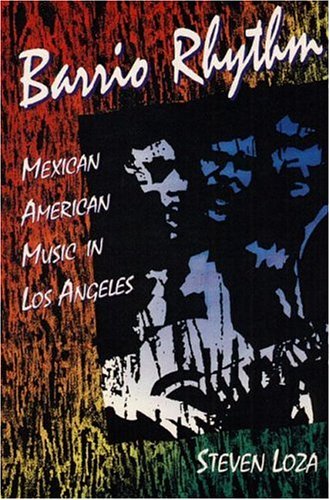Music in American Life
2 total works
He is known as "El Rey" - the king - and has come to epitomize the Latin experience in music, not just to Latinos throughout the United States and Latin America but to a worldwide audience of all backgrounds. "Tito Puente and the Making of Latin Music" is the first in-depth historical, musical, and cultural look at the career and the influence of this giant of Latin music. In this seminal work, Steven Loza brings the man and his music vividly to life through exclusive interviews with Puente and a number of his close associates, including Hilton Ruiz, Ray Santos, Jerry Gonzlez, Poncho Sanchez, and Joe Conzo, as well as music journalist Max Salazar and former DJ/producer Chico Sesma. Loza shows how Puente's music evolved in tandem with the crystallization of Latin music into its current compelling mix of Afro-Cuban music, salsa, and Latin jazz. Tracing Puente's innovations as a drummer and a bandleader, Loza defines his influence over the course of half a century on Latin music as well as on other musicians and musical genres.
Loza also delineates the social and cultural history of Latin music, exploring questions of nationalism and ethnic expression, the play between musical creation and commercial competition, and the politics of so-called multiculturalism as they bear on Latin music and musicians. The book includes detailed musical analyses and a discography of more than a hundred recordings. Celebrating a dynamic performer and a genre that is deeply rooted in America's rich ethnic diversity, "Tito Puente and the Making of Latin Music" traces a significant current in twentieth-century culture and reveals all the vibrancy and color of a consummate artist's life, work, and world.
Loza also delineates the social and cultural history of Latin music, exploring questions of nationalism and ethnic expression, the play between musical creation and commercial competition, and the politics of so-called multiculturalism as they bear on Latin music and musicians. The book includes detailed musical analyses and a discography of more than a hundred recordings. Celebrating a dynamic performer and a genre that is deeply rooted in America's rich ethnic diversity, "Tito Puente and the Making of Latin Music" traces a significant current in twentieth-century culture and reveals all the vibrancy and color of a consummate artist's life, work, and world.
The hit movie La Bamba (based on the life of Richie Valens), the versatile singer Linda Ronstadt, and the popular rock group Los Lobos all have roots in the dynamic music of the Mexican American community in East Los Angeles. The "Eastside Renaissance" in the region gave barrio music a symbolic power throughout the Southwest, yet its story has remained undocumented and virtually untold. In Barrio Rhythm, Steven Loza brings this hidden history to life, demonstrating the music's essential role in the cultural development of East Los Angeles and its influence on mainstream popular culture. Drawing from oral histories and other primary sources, as well as from appropriate representative songs, Loza provides a historical overview of the music from the nineteenth century to the present and offers in-depth profiles of nine Mexican American artists, groups, and entrepreneurs in Southern California from the post-World War II era to the present. His interviews with many of today's most influential barrio musicians, including members of Los Lobos, chronicle the cultural forces active in this complex urban community.

